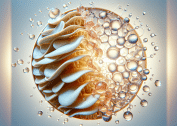In today’s fast-paced world, distractions are everywhere, making it challenging to stay productive. One emerging trend in productivity and workplace wellness is the recognition that decluttering physical and mental space boosts productivity significantly. This approach goes beyond simply tidying a desk; it involves intentionally creating an environment and mindset that reduces overload, promotes clarity, and supports sustained focus.
This article explores the latest insights into how decluttering both your physical surroundings and mental landscape can improve productivity. It also offers practical strategies to help you simplify your space and mind, supported by current research and expert advice.

Why Decluttering Physical and Mental Space Boosts Productivity
The modern workspace is often overloaded with digital notifications, piles of documents, and a cluttered mind juggling multiple tasks. Research shows that clutter in both physical and mental forms drains cognitive resources, reduces focus, and impairs decision-making.
A 2021 study published in the Journal of Environmental Psychology found that individuals working in cluttered environments demonstrated higher stress levels and lower task performance compared to those in organized spaces. Similarly, mental clutter—characterized by racing thoughts, unfinished tasks, and emotional overload—can reduce working memory capacity, a critical factor in productivity .
By decluttering both spaces, people free up mental bandwidth to focus deeply on meaningful work, improving efficiency and creativity.
The Physical Clutter-Productivity Connection
How Physical Clutter Affects the Brain
Clutter signals to the brain that work is incomplete. This triggers a stress response, causing elevated cortisol levels and making it harder to concentrate .
Furthermore, a disorganized workspace leads to time wasted searching for items or information, disrupting workflow and reducing efficiency. The average worker reportedly wastes 4.3 hours weekly looking for misplaced things.
Practical Steps to Declutter Your Physical Space
- Adopt the “one in, one out” rule: For every new item brought in, remove another to maintain balance.
- Use minimalist storage solutions: Keep only essentials on your desk; use drawers or boxes for the rest.
- Schedule regular decluttering sessions: Set weekly or monthly times to review and organize your space.
- Digitize paperwork: Convert physical documents into digital files to reduce paper clutter.
- Limit digital distractions: Organize your desktop and close unused tabs and apps to reduce visual noise.
Mental Clutter: The Hidden Barrier to Productivity
What is Mental Clutter?
Mental clutter involves an overload of thoughts, worries, and unfinished business in your mind, which interferes with your ability to concentrate and make decisions. It often results from multitasking, information overload, and insufficient rest.
Neuroscientific research indicates that mental clutter consumes working memory resources, lowering cognitive control and increasing errors.
Techniques to Reduce Mental Clutter
- Mindfulness and meditation: Regular mindfulness practice reduces stress and improves attention by helping you focus on the present moment.
- Journaling: Writing down thoughts and to-dos clears mental space and aids in prioritizing tasks.
- Task batching: Group similar tasks to reduce cognitive switching costs.
- Set digital boundaries: Limit exposure to non-essential emails and social media during focused work times.
- Practice “brain dumping”: Transfer all your thoughts onto paper or a digital tool to declutter your mind.
Emerging Trends: Digital Decluttering and Its Role in Productivity
With so much work happening online, digital clutter has become a new frontier impacting productivity. An overflow of emails, constant notifications, and disorganized files contributes to cognitive overload.
According to a 2023 survey by Adobe, 58% of workers report feeling overwhelmed by digital clutter.
Strategies for Digital Decluttering
- Inbox zero: Regularly clean and organize your email inbox using folders, filters, and priority flags.
- Notification management: Customize which apps and services send alerts.
- File organization: Maintain a clear, logical folder structure and delete outdated files.
- Use productivity apps: Tools like Todoist, Notion, or Microsoft To Do help centralize tasks and reduce mental overhead.
Benefits of Decluttering Physical and Mental Space
The advantages of decluttering are well-documented across multiple domains:
- Improved focus: Less distraction enables deeper, more sustained concentration.
- Reduced stress: An organized space and clear mind lower anxiety and cortisol levels.
- Increased creativity: Mental clarity fosters better problem-solving and idea generation.
- Time savings: Less searching and multitasking frees up time for higher-value activities.
- Better decision-making: Cognitive resources are preserved, allowing for clearer judgments.
These benefits have made decluttering a key component of modern productivity systems like Getting Things Done (GTD) and minimalism-inspired workflows.
How to Start Decluttering for Productivity: A Simple Guide
- Assess your environment: Identify clutter hotspots in your workspace and mental patterns.
- Set small, achievable goals: Begin with one drawer or one mental habit at a time.
- Use the “Four-Box Method” physically: Sort items into Keep, Donate, Trash, and Relocate.
- Schedule daily mental decluttering: Spend 5–10 minutes journaling or meditating.
- Leverage technology mindfully: Use apps to organize tasks but avoid adding complexity.
- Review progress weekly: Adjust strategies based on what works.
Conclusion
The growing understanding that decluttering physical and mental space boosts productivity is reshaping how individuals and organizations approach work. By simplifying our environments and minds, we reduce distractions and cognitive load, enabling more focused, creative, and efficient work.
As the boundary between personal and professional lives continues to blur, prioritizing decluttering practices becomes even more essential. Starting small and consistently maintaining order can yield significant gains in productivity and well-being.
References
- Journal of Environmental Psychology. (2021). Cluttered environments and stress effects on task performance. Retrieved from https://www.sciencedirect.com/science/article/abs/pii/S0272494421000025
- American Psychological Association. (2023). Working memory and distractions. Retrieved from https://www.apa.org/news/press/releases/2023/05/working-memory-distractions
- Harvard Health Publishing. (2022). How clutter affects your brain and what to do about it. Retrieved from https://www.health.harvard.edu/mind-and-mood/how-clutter-affects-your-brain-and-what-to-do-about-it









